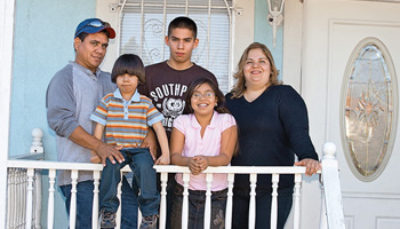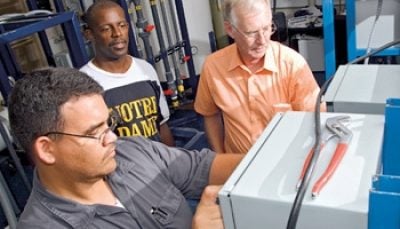State-level initiatives are building workers’ skills to meet employers’ needs while also strengthening policies for adult education, job training, economic development and other resources to help individuals find and keep jobs and build careers.

Developing pathways for parents to become financially stable and support their children’s healthy development and academic success.
Helping low-income parents and other adults find good jobs and steady incomes.
State-level initiatives are building workers’ skills to meet employers’ needs while also strengthening policies for adult education, job training, economic development and other resources to help individuals find and keep jobs and build careers.
Nearly 6.5 million U.S. teens and young adults are neither in school nor in the workforce. With new research, Casey offers recommendations to support youth in gaining a stronger foothold in the economy.
Throughout the nation, the Integrated Basic Education and Skills Training program equips individuals with the literacy, work and life skills they need to earn credentials and get to work.
Supporting working parents and other adults to manage their money effectively and meet immediate needs.
Between 2001 and 2008, 1.37 million free tax returns were prepared at Volunteer Income Tax Assistance sites across the country in an effort to help families leverage the earned income tax credit without paying large fees.
Recognizing that a job is not enough, Casey’s Center for Working Families approach connects low-income individuals to public benefits, tax credits and job training, while also providing financial coaching and education to help families budget for household needs and plan for the future.
Encouraging parents and other adults to pay off debt and remain financially stable for the long term.
During the Great Recession, families in low-income neighborhoods were disproportionately affected by the crisis due to targeted subprime lending, less access to traditional credit sources and higher unemployment rates.
With some 70 million Americans having poor credit scores or no credit history, the Foundation has developed tips to help families avoid money traps that can drag down credit scores.

Strategies to help individuals and families build financial assets and become adept at managing their money responsibly.

Investments aimed at linking individuals disconnected from the workforce or school to opportunities for jobs, education and achieving the American Dream.
Learn and Earn to Achieve Potential (LEAP)™ boosted employment and education opportunities for young people who were navigating some of life’s most challenging circumstances, including involvement in the child welfare or justice systems and homelessness.

The Center for Working Families helps low-income families access key services in one place to achieve financial stability and long-term success. Read more.

UPS and Casey launched a program to help foster youth transition to independence, now expanded nationwide through partnerships with employers and agencies.

Launched in 1995, the Jobs Initiative was an eight-year effort in six cities to connect inner-city adults to family-supporting jobs and to improve the way.
This blog tells how three community colleges are serving the non-academic needs of student parents. Learn more.
Juma Ventures equips young people with the job experience, support and training they need to thrive. Read more.
Learn how organizations that support systems-involved youth can incorporate LEAP’s successes into their own work.
We hope you'll find value in this report. We’d love to get a little information from you, which we'll use to notify you about relevant new resources.